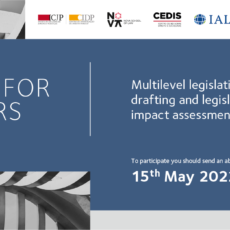
From 6 to 10 August 2018 a summer course will be held at Radbound University , in the Netherlands, on the topic Judges at War: Understanding the Crisis of the Rule of Law in Eastern Europe.
There is much more ‘behind the scenes’ in Poland and Hungary than you can learn from newspapers. Simple tale of seductive populists, charming masses and marching them into dictatorship makes a good story for infotainment media but does not explain either what exactly happened, or why it happened.
In this course, we examine the evolution of the judiciary systems in post-communist countries, and their intertwined relations with politics trying to understand what drove Kaczynski and Orban to their authoritative policies on the judiciary – and why these policies are exactly what their voters expect.
One important conclusion is that Poland and Hungary – and probably some other East-European countries – demonstrate a strong path-dependency of their transformation legacies, not only in institutional but also in social terms, which makes them different in many aspects from established Western democracies.
Several possibilities arise from this assessment: either was the 2004 EU-Enlargement a mistake, or the newbies must be forced to maintain European standards more energetically, or, perhaps, a new way to achieve these standards must be offered to them if they are to remain rule-of-law-countries.
The course will cover the following topics:
1. Theoretical introduction: law as a social phenomenon
Relation between ‘law in books’ (legal texts), ‘law in action’ (judgements) and the ‘law in minds’ (social perception) is crucial for the legal system regarded as a part of a wider political construct. The way people conceive the law and the way law itself acts in social relations determine the legitimacy of the political system as a whole
.
2. Historical background: when did Communism end Both Polish and Hungarian way out of totalitarian dictatorship was a negotiated one. It created an opportunity for the nomenklatura first, to secure economic privileges and subsequently to remain the strongest political force in the mid stage of the transformation. Adapting to democratic rules of the game, post-communists did not hesitate to bend them when they considered it useful. Incorporating informal ties and dependencies into formal procedures of judiciary and administration led to the creation of uneven playing field and undermined the legitimacy of the system.
3. Socio-political analysis: cleavages and social conflicts in the Eastern Europe
Major social conflict in post-communist countries was not between the ‘left’ and ‘right’ (as no social classes which would fit that pattern existed) but between the transformation-beneficiary and the transformation-malcontents. And one of the crucial notions defining that conflict was the one of justice, applied on many levels and in different context (social, symbolical, individual). The malcontents treated the transformation as an unjust process and the state that was a product of if as an unjust one. Combined with a lack of legitimacy, this sentiment undermined all state institutions, in particular the judiciary.
4. ‘War with judges’: recent developments in Hungary and Poland
With reference to this background, it is easier to understand why Orban and Kaczynski came into conflict with the institutions the legitimacy of which is – under normal circumstances – indisputable. The course of these conflict will be outlined and an assessment of the current situation with respect to the rule of law will be made.
More information: here.
![]()





